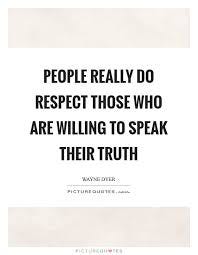This is, thank god or whatever you pray to, the last week of December in a year that seemed destined to never end. But despite all of the hell unleashed on local music venues, movie theaters, and more, there was a lot of incredible art released—I’m still finding records that came out this year that I totally missed or ignored for whatever reason (and there were plenty) that I’m just now clicking with. And more than a few things I’ve listened to heavily this year came out in 2019 — Alex G’s House of Sugar and Patience by Mannequin Pussy were both in the top of the list Spotify’s weird algorithm made for me after I totally missed them last year.
This happens to me every year. There’s simply way too much shit to consume for any one person to get a reasonable handle on all of it the same year it came out, even when it’s confined narrowly to a genre of music or movie or book. Things fly under your radar and then you find them later. And this is just one reason why year-end lists have always annoyed me a little bit, and why I've never understood why there aren't more "year-after" lists that take this factor into account and make a judgment with some distance on all of the music that actually came out in a given year.
This year’s “best of” lists started coming almost as soon as Thanksgiving was over, like a switch had been turned on. Stereogum’s and Complex's best records lists came out on December 1, Rolling Stone's three days later, and Pitchfork’s on December 8. It’s easy to understand why the music press does this — December is notoriously difficult for filling space and also getting people to read the stuff you are writing and producing, and year-end lists are an easy solution to both of those problems.
But the flip side is that music was still actively coming out well after a lot of the top names in the music press had finished their year-end packages. Rico Nasty’s Nightmare Vacation came out December 4 and Taylor Swift and the Avalanches both came out with records on December 11. Whether this is stuff you actually like or not is besides the point; the best record of the year could come out in the last couple of weeks in December. And then what? The critics would look like complete morons who goofed!
Doing a list the following year would also serve as a useful correction for things that didn't get their due at the time of their release, and some that maybe got too much due. I was all of 12 at the time but I'm pretty sure everyone at Pitchfork in 2003 realized by like March that ...And They Will Know Us By the Trail of Dead's Source Tags and Codes was not a perfect record or even the third-best album that came out the previous year, and that tons of the stuff they put below it (Songs: Ohia, GZA, Hot Snakes, Sigur Ros, McClusky) was way better. Everyone thought Pinkerton sucked when it first came out. (Weezer as a band, however, kind of does.) It is twelve years after the collapse of the global financial system and we can now all agree that Michael Clayton was better than There Will Be Blood and No Country for Old Men. (Will not be reading the comments of this post.)
Instead of dropping these "best of" packages in early December, doing so in late January or February (or even later) would fairly weight everything that was released the previous year, and provide a slight buffer for stuff that flew under the radar and against things that might've sounded or seemed good at first but were ultimately forgettable. I strongly believe this, which is probably why I do not run a culture website. But democracy dies in darkness, and someone has to tell the truth.






